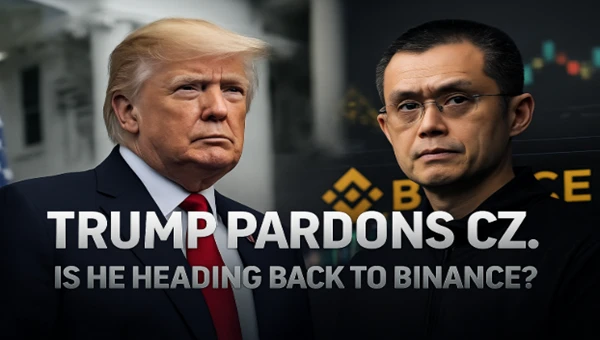

The Story of Zhao
Zhao pleaded guilty in late 2023 to violating the Bank Secrecy Act by failing to maintain an effective anti-money laundering (AML) program at Binance, which paid a record settlement of $4.3 billion.. Zhao served approximately four months in prison before his release in 2024. The pardon immediately triggered speculation about his future and the broader implications for crypto governance, regulatory oversight, and Binance’s U.S. operations.
Zhao’s personal journey began in China, where he was born in 1977, before his family relocated to Canada following the events of 1989. He studied at McGill University and entered finance and technology roles, including at Blockchain.info and OKCoin. In 2017, he founded Binance, which swiftly became the world’s largest cryptocurrency exchange by trading volume.
Under his leadership, Binance expanded aggressively, but the growth came at a cost. Regulators alleged that Binance lacked sufficient AML controls and processed trades linked to sanctioned entities. In late 2023, Zhao resigned as CEO as part of his plea deal. His conviction and prison time marked a major turning point for both him and the exchange.
Binance’s post-Zhao era
Under interim leadership, Binance has shown resilience that tempers speculation about Zhao’s return. Richard Teng, appointed CEO in late 2023, steered the company through a compliance overhaul. He recruited former regulators, shuttered high-risk operations, and secured licenses in key markets like France and Dubai.
Trading volumes rebounded to $2 trillion monthly by mid-2025, outpacing Coinbase’s $1.2 trillion.
User growth hit 180 million, fueled by features like simplified on-ramps for fiat currencies. Compared to peers, Binance’s recovery mirrors FTX’s collapse in 2022 but flips the script: where Sam Bankman-Fried’s empire crumbled under fraud, Binance stabilized by prioritizing transparency. This progress under Teng raises the stakes for any Zhao comeback—would his visionary style clash with the measured approach that restored trust?
The pardon: lobbying, alignment, and politics
The pardon itself emerged from a calculated push by crypto advocates. Behind the scenes, the Digital Chamber of Commerce, a Washington-based lobby group, mobilized allies in Trump’s orbit. Led by executives from Coinbase and Ripple, the chamber donated over $10 million to pro-crypto PACs during the 2024 election cycle.
They framed Zhao’s case as regulatory overreach, arguing it stifled innovation at a time when the U.S. risks losing ground to Asia’s hubs.
Trump, who courted the sector with promises of a “crypto capital” in America, signed off after private briefings. Zhao responded with measured optimism in a post-prison statement on X. “Grateful for this second chance. My focus remains on building responsibly,” he wrote, avoiding direct mention of Binance.
Critics highlight that Binance has engaged closely with entities tied to Trump family interests. For example, the Trump-affiliated crypto venture World Liberty Financial reportedly entered into business discussions with Binance and invested in a Binance-linked stablecoin.
Will CZ return to Binance? Market watchers divided
On the question of whether Zhao will resume leadership at Binance, there is no definitive answer yet. He has publicly expressed gratitude for the pardon and pledged to “help make America the capital of crypto.” But he has not confirmed a formal role at Binance.
At the heart of the suspense lies Polymarket, the prediction platform where bettors peg Zhao’s Binance return at 50-50 odds. Volumes topped $5 million within hours of the news, reflecting trader bets on his advisory role versus full CEO reinstatement.
Legal experts note the pardon clears federal hurdles but leaves civil suits and international scrutiny intact. If Zhao rejoins, it could mean aggressive expansion—perhaps into U.S. custody banking—but at the risk of reigniting SEC probes. His absence forced Binance to mature; his presence might accelerate growth or invite backlash.
Final word
Zhao’s pardon stands as a landmark in the evolving relationship between Washington and the crypto industry. Whether he returns to Binance remains unresolved, but the stage is set for high-stakes manoeuvring in global crypto regulation and corporate governance. Stakeholders on all sides will now watch closely.
The coming weeks will reveal if the founder seizes his throne or steps aside, letting his creation evolve without him.
He has worked with several companies in the past including Economy Watch, and Milkroad. Finds writing for BitEdge highly satisfying as he gets an opportunity to share his knowledge with a broad community of gamblers.
Nationality
Kenyan
Lives In
Cape Town
University
Kenyatta University and USIU
Degree
Economics, Finance and Journalism


Facts Checked by Josip Putarek

 Fact checked by
Fact checked by 

 eabungana@gmail.com
eabungana@gmail.com 